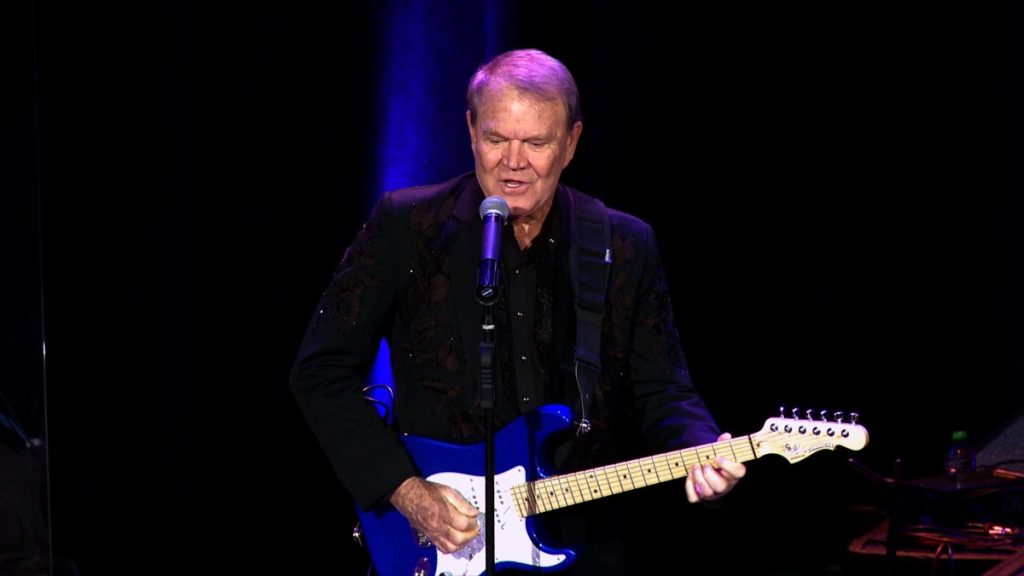
A Melancholic Ode to a Soldier’s Yearning
“Galveston”, performed by the legendary Glen Campbell, is a poignant ballad that resonates with the echoes of longing and the pangs of separation. Released in 1969, this masterpiece quickly climbed the charts, reaching number four on the Billboard Hot 100 and securing the top spot on the country charts. The song’s release during a tumultuous era in American history—a time marked by the Vietnam War—imbued it with layers of meaning that spoke to the hearts of many.
At its core, “Galveston” is a narrative of a soldier who yearns for his homeland while stationed far away, likely amidst the chaos and uncertainty of war. The lyrics, penned by the illustrious songwriter Jimmy Webb, paint a vivid picture of a man haunted by memories of home and a loved one waiting by the shores of Galveston, Texas. It’s not just about the geographical longing but also an emotional and spiritual yearning for peace and safety—an escape from the turmoil surrounding him.
The backdrop against which “Galveston” was released cannot be overlooked. In 1969, America was deeply embroiled in Vietnam, a conflict that divided public opinion and left indelible scars on those who served and their families. This context lent the song a particular poignancy; it became an anthem for soldiers overseas and their families back home, capturing their collective hopes and fears in its gentle melody and introspective lyrics.
Glen Campbell’s delivery of “Galveston” is nothing short of masterful. His voice carries a warmth and sincerity that amplifies the emotional weight of the song. With each note, Campbell conveys not just the soldier’s longing but also an underlying sense of hope—a belief in eventual return and reconciliation. His performance is imbued with a wistful nostalgia that resonates deeply with listeners, particularly those who lived through or have connections to that era.
Musically, “Galveston” is characterized by its lush orchestration and melodic simplicity. The arrangement complements Campbell’s vocals beautifully, with strings and brass adding depth without overshadowing the heartfelt message at its core. The song’s production reflects a quintessentially late-60s sound—a blend of country roots with pop sensibilities—that helped it appeal to a broad audience.
The legacy of “Galveston” endures because it taps into universal themes: love, loss, and longing. For older listeners especially, it serves as a reminder of past struggles and triumphs, evoking memories not only of personal experiences but also of a pivotal period in history. The song invites reflection on how far we’ve come and what we’ve endured along the way.
In revisiting Glen Campbell’s “Galveston,” one is reminded of music’s power to transcend time, speaking to shared human experiences across generations. It remains a testament to Campbell’s artistry and Webb’s songwriting prowess—a piece that continues to evoke emotion and stir memories long after its initial release. For those who remember hearing it for the first time on their radios or at home with family, “Galveston” is more than just a song; it is a cherished piece of their personal and collective history.
